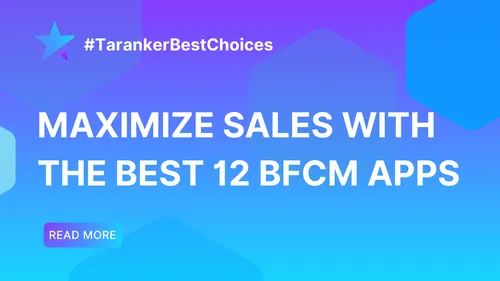Understanding tax reforms is critical for print-on-demand entrepreneurs as these changes can significantly impact business operations and profitability. The complexity of U.S. tax reforms requires a vigilant approach to ensure that your entrepreneurial venture not only complies with legal requirements but also leverages every opportunity to maintain and enhance profitability. Whether you're starting your print-on-demand journey or you're a seasoned veteran, staying informed about the latest changes can seem daunting. However, this blog post aims to provide you with the necessary insights to navigate these reforms effectively.
In an industry where profit margins are often razor-thin, the ramifications of tax reforms can be profound. For instance, adjustments in sales tax collection and deductions can alter your bottom line substantially. By breaking down the key elements of recent tax reforms and their implications, we aim to equip you with the knowledge needed to make informed financial decisions. You'll learn how to optimize tax strategies, avoid common pitfalls, and seize opportunities that arise from these legislative changes, all with the goal of ensuring your business not only survives but thrives.
We will delve into practical strategies used by successful print-on-demand entrepreneurs, backed by real-world examples and expert advice. By the end of this guide, you will have a clear understanding of how to align your business operations with current tax laws, allowing you to focus on what you do best - crafting unique products that captivate your audience.
Understanding Recent. U.S. Tax Reforms
As a print-on-demand entrepreneur, understanding recent U.S. tax reforms is crucial for maintaining your business's financial health. Recent changes include adjustments in tax brackets and updates on deductions and credits specifically beneficial for small businesses. Staying informed on these shifts helps you navigate new opportunities or pitfalls.
- Tax Brackets: Check the current year's tax rate changes to understand how they affect your profit margins.
- Deductions and Credits: Certain deductions, such as those for qualified business income, have seen modifications. Make sure you're leveraging these to optimize tax savings.
- Compliance: Maintain accurate records to ensure compliance with new regulations and avoid penalties.
By proactively adapting to these reforms, you can enhance your tax strategy, supporting your overall business growth and sustainability.
Impact on Business Expenses and Deductions
With recent U.S. tax reforms, print-on-demand entrepreneurs need to stay informed about changes that may impact their business expenses and deductions. Understanding how these changes affect your bottom line is crucial for optimal financial planning.
Notable revisions include:
- Business Travel: Adjustments to the deduction limits for business-related travel can affect how you plan trips to suppliers or conventions, as recent guidelines specify reduced limits and altered requirements. For more on this, see the IRS's Publication 463 on travel, gift, and car expenses.
- Home Office Expenses: If you operate from home, understanding the intricacies of the home office deduction is vital. The IRS now provides a simpler option to calculate these expenses, but knowing which is most beneficial for your situation requires careful assessment. More details can be found in IRS's home office deductions guideline.
- Equipment Purchases: Changes in the depreciation rules, such as bonus depreciation, may influence decisions about when and how much to invest in new equipment. These reforms are explained in the IRS's depreciation update.
Adhering to these guidelines not only ensures compliance but can significantly improve your financial efficiency.
Navigating Sales Tax Complexities Across States
In today's rapidly changing tax landscape, navigating sales tax complexities across states is crucial for print-on-demand entrepreneurs. As states continue to update and enforce sales tax regulations, understanding nexus laws - rules determining whether a business must collect sales tax in a particular state, becomes essential. For instance, economic nexus thresholds, which require a business to collect sales tax based on sales volume or transaction count in a state, vary widely [more].
To efficiently manage these obligations, leveraging automation tools and software can help in tracking and remitting sales tax appropriately, minimizing errors and ensuring compliance. Platforms like TaxJar and Avalara offer comprehensive solutions designed to handle such complexities, allowing entrepreneurs to focus more on their business growth rather than the intricacies of tax law. By staying informed and utilizing the right resources, print-on-demand businesses can successfully navigate the ever-evolving tax regulations with confidence.
Leveraging Tax Credits and Incentives
- Print-on-demand entrepreneurs can harness numerous federal and state tax credits to boost their business's financial health.
- Consider exploring the Small Business Health Care Tax Credit, which can significantly reduce your tax obligations if you offer health insurance to employees.
- The Work Opportunity Tax Credit is another valuable incentive, offering relief for hiring veterans and certain other groups.
- State-specific incentives can also benefit your print-on-demand business, which vary widely. It's crucial to contact your local Small Business Administration office for precise recommendations tailored to your location.
- Dedicate time to researching these options annually, as policies and credits can change, aligning your strategies with current opportunities.
Effective Record-Keeping Practices
- Ensure thorough tracking of all business-related income and expenses. Utilizing IRS guidelines can assist in identifying what constitutes business income and allowable deductions.
- Embrace modern digital bookkeeping tools like QuickBooks or FreshBooks for efficient record maintenance. These platforms provide seamless ways to categorize financial transactions, generate reports, and store copies of critical financial documents.
- Regularly back up your data to prevent loss. Using cloud-based solutions such as Dropbox or Google Drive provides a secure and accessible way to store financial documents.
- Keep updated on tax laws and reforms affecting your business by consulting reputable resources like Tax Policy Center, ensuring your record-keeping practices remain compliant.
- Establish a systematic review schedule, perhaps quarterly, to audit your records for accuracy, ensuring they are ready for any potential IRS inquiries.
Adhering to these practices not only helps in maintaining compliance but also fosters a more organized and profitable business environment.
Future-Proofing Your Business Against Tax Changes
- Stay Updated: Regularly follow reliable financial news sources like The New York Times' Economy Section to keep abreast of the latest developments in tax reform.
- Consult Professionals: Seek advice from certified tax consultants who specialize in small businesses to get tailored insights and recommendations.
- Flexible Operations: Implement scalable business strategies that allow quick adaptation to new tax laws, minimizing disruption.
- Educate Yourself: Invest time in understanding potential tax implications through resources provided by the IRS and other credible institutions.
- Implement Technology: Use financial software that automatically updates tax codes to streamline compliance.
By proactively embracing these strategies, print-on-demand entrepreneurs can safeguard their operations and maintain financial stability amid ongoing tax reforms.
Navigating tax reforms can be daunting, but staying informed and proactive can empower print-on-demand entrepreneurs to leverage new opportunities while minimizing risks. By understanding and adapting to these changes, you can secure your business's financial health and concentrate on growth and innovation. As tax laws evolve, tailoring your strategies can not only mitigate potential pitfalls but also position your business for success.
Remember, staying ahead requires dedication and timely adaptation. Regularly consulting with tax professionals and keeping abreast of the latest updates from reliable sources like the IRS, and reputable financial news outlets can offer valuable insights. Consider the following steps:
- Engage with a qualified accountant who specializes in small businesses or e-commerce for tailored advice.
- Attend seminars or webinars on tax reform updates to stay current.
- Leverage technology to streamline your financial reporting and tax filing processes.
Armed with this knowledge, you can confidently face the complexities of tax reforms and capitalize on new opportunities. Consistent learning and proactive adjustments can pave the way for growth and innovation in your print-on-demand venture. Take action today, starting with a comprehensive review of your current tax practices—your business’s future depends on it.













